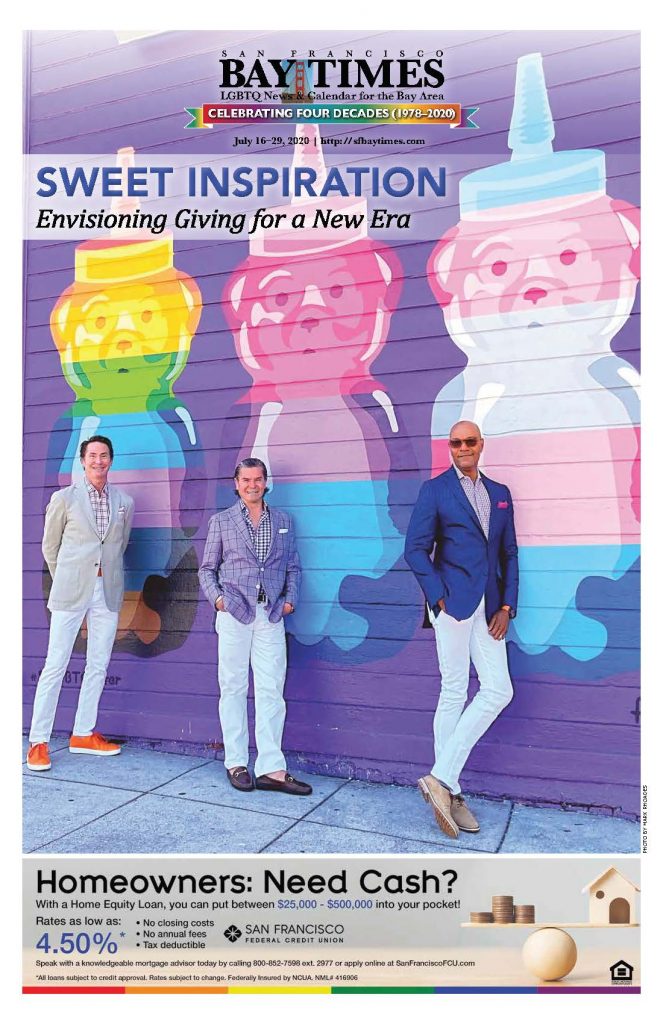
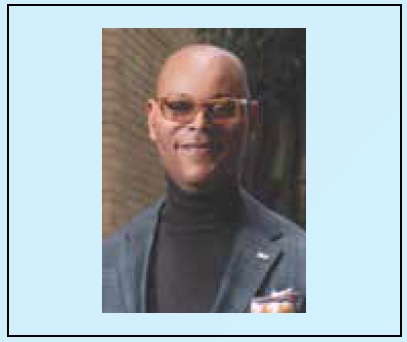
By Derek Barnes–
Social Philathropreneur–
(Editor’s Note: The San Francisco Bay Times is proud to launch a new column by business solutions architect Derek Barnes, whose work and volunteer achievements are many and are far too numerous to fully mention here.
His career includes serving as Vice President of Technical Services & Operations for Here Media, Inc., co-founding Ignition Point Ventures, working as a Senior Consultant and Operations Leader for Ignition Point Consulting, and serving as COO and CTO for minority-owned and operated g-dii Enterprises, which has offices on Wall Street in New York and in San Francisco.
As a volunteer, he is now on the board of directors for both the Horizons Foundation and Homebridge, Inc. Previously, he was on the board of the San Francisco LGBT Center, Sunflower Wellness, Under One Roof, and much more. His schedule is always packed, so we were thrilled and honored when he accepted our invitation to write for the Bay Times.
Philanthropy is forever important and needed, but never more so than at this difficult time. As great as the need is, even greater is the possibility for you to make a positive difference as Barnes has done, and continues to do.)
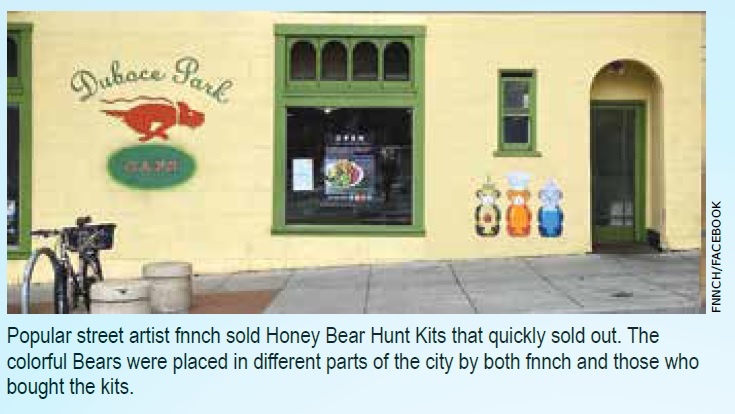
If you asked friends to explain philanthropy, chances are they’d describe an affluent person of a certain age, probably white, who could write a big check to the arts, an endowment, a community initiative, or even a capital campaign. The truth is that philanthropy comes in many forms, is engaged by all types of people, and supports various communities in different ways. As someone who grew up in a middle-class neighborhood, I’m proof that philanthropy can start at any age, with anyone, for any cause. And today, we need philanthropists of every age and from all walks of life more than ever.
As a child, I was riveted watching Jerry Lewis’ MDA Labor Day Telethon each year. He made helping people very cool, so I began raising money for UNICEF in the third grade. As a teenager, I volunteered several summers at a camp for kids with special needs and disabilities at AHRC in Brookville, New York. My brother was mentally disabled, and my mother wanted to instill the value in being of service and having empathy for others in need. As a young adult in Washington, D.C., I became a regular donor and an event volunteer for Human Rights Campaign, Whitman-Walker Clinic, and PETA.
My experience taught me that philanthropy doesn’t always mean writing a check to support a big cause. It doesn’t have to be intimidating or inaccessible. It can be fun, and one of the most human activities that all of us can initiate without much sacrifice. It can be small acts of kindness and generosity that help a few people in a community or transformational projects that change millions of lives around the world.
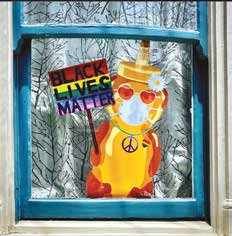
Perhaps like you, at no other time in my life have I been so confronted by the confluence of extraordinary social challenges—healthcare disparities fueled by a growing pandemic, widening income inequality, economies in recession, the fragility of a shrinking working middle class, a nation divided politically, and generations of unresolved racial and social injustices. It’s easy to be paralyzed by fear and to feel powerless to make substantial changes with so much need. And if you are Black or Brown and LGBT, it probably feels like an overwhelming assault and offense from every conceivable direction. I know it does for me.
Over the last six weeks, we’ve seen momentous protests as many people have been called into action as a result of police killing more unarmed citizens, systemic racial inequality, and social injustice. In addition to protesting and community organizing, other civic engagement practices and new philanthropic models must sustain these movements to effect change. A new set of philanthropic tools to get us there is emerging. They will usher in a more durable social agenda, offering many more opportunities to help (historical research, policy development, legislative advocacy, political representation, corporate giving, workforce activism, public/private foundations, individual giving and donor-advised funding, volunteering, and watchdog advocacy).
Outraged over the murders, many friends have recently asked me, “How can I help?” or, “What can I do?” While I’m honored to be thought of as a resource, it made me contemplate what was really being asked. Do you want my help to understand a different perspective? Do you want absolution or forgiveness? Is there an expectation that I know how to solve these problems? It sometimes feels like I’m their only Black friend who can provide a fast and easy answer to “check the box” and move on without doing much work. It’s important to begin our personal journey with more education and engagement to improve genuine empathy and compassion. There are infinite ways to help if people are open to more understanding and willing to devote the time.
It’s time to think about philanthropy in a new way by reexamining who decides what issues become a priority, where resources should be sourced, and how dollars and value are actually distributed. It’s clear that transformative social change is needed and requires an individual call to action. For that, philanthropy is key.

By definition, philanthropy is a Greek term for “love of mankind.” It can be an idea, event, or action that is engaged to improve humanity, but requires some meaningful sacrifice with no profit motive. I love this pure translation because everyone can be involved in efforts to advance humanity within areas that leverage their passion and superpowers—a unique lane to help. It doesn’t require a person to have great power, success, time, or fortune.
My business skills and network are my philanthropic superpowers, and I use them to help underserved and underrepresented communities solve big problems—by developing new strategies, planning growth, and procuring resources. Timing is important. I joined various boards during critical periods when my expertise was needed—supporting leadership change at the Victory Fund, building and opening of the SF LGBT Center, repositioning Under One Roof, and expanding nationally at Sunflower Wellness.
Maybe your superpower is organizing people or producing events. Perhaps your passion is voting rights, art education, or ending homelessness. You don’t have to join a board or write big checks to be a philanthropist who gives back. Explore ways to connect your superpower and passion to a need that advances humanity—socially, economically, environmentally, or politically. If you’re not sure, it’s okay to try a few things first to see what delivers personal joy. Philanthropy should never be a moment to “check the box,” nor should it be a way for someone to apologize and atone for all the wrongs that may have been committed to disenfranchise, marginalize, or compartmentalize the more vulnerable among us. Ideally, it should represent a lifelong passion that a person(s) or organization is committed to supporting.
I see philanthropy as a bellwether for gaging our shared values and humanity. It’s the great equalizer to unbridled capitalism, ensuring that an eternal harmony and universal balance are maintained of those who have and those who have not. The social problems and human conditions today, in my view, are a direct result of imbalance and humanity that is out-of-sync with nature.
We see escalating political instability, economic crashes, and global disruptions because our prevailing systems are not sustainable.
To correct the imbalance, we need a prodigious shift from value extraction to a broader distribution of shared value.
We are at the dawn of a new wave of civic and social responsibility that demands our participation to protect and support the most vulnerable among us. A new social contract and an updated definition of what it truly means to be a modern-day philanthropist are desperately needed in these unprecedented times. What values will we uphold, and who gets to decide how to commandeer and distribute resources to effect transformative social change? Philanthropy is a tool that can restore balance if engaged by more people, along with advocacy and activism. It is time to do more than just “check the box.”
What would our communities look like if every person and company gave at least five percent of their income, and everyone volunteered just five hours a month to a philanthropic venture? If the mission is to eliminate poverty, support the BLM movement, or protect LGBTQ rights, we’d do well if more of us educated ourselves to understand current issues (to develop empathy), and then tapped into our passions and superpowers to find meaningful ways to get involved (to show compassion). If we all do a little, then no one person has to do a lot.
Derek Barnes is the Chief Operating Officer at g-dii Enterprises and a Senior Advisor at Ignition Point Consulting. He currently serves on the boards of Horizons Foundation and Homebridge. Follow him on Twitter @DerekBarnesSF or on Instagram at DerekBarnes.SF.a
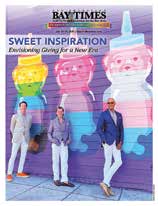
The latest cover of the San Francisco Bay Times features new columnist Derek Barnes (far right), his partner Ted Hiscox (far left), and Christopher Meza. Hiscox is a renowned chef, who is now with 44 Normandie, LLC. Meza is a luxury property broker for Coldwell Banker and has served on numerous boards, including the Denver Hispanic Chamber of Commerce. All three men have worked hard to achieve tremendous success in their respective fields. They are also all dedicated to giving back to the community, fighting for social justice, and re-envisioning philanthropy for this new era.
The pandemic and the rapid strengthening of the Black Lives Matter movement have, over a period of just a few months, jolted us into this new period of time. For better and worse, life will likely never be the same as it was before.
The coronavirus and resulting business closures have strained nearly all of us. People of color and those already struggling with health and/or financial issues have been especially hard hit. The need now is collectively greater than ever and will require innovative, effective approaches to problems that often feel overwhelming.
Barnes, Hiscox, and Meza are among the business leaders who are using their skills to rethink giving at this unprecedented time—not just charity, which tends to be short-term and emotionally driven—but philanthropy, which seeks long-term, strategic solutions. See Barnes’ piece in this issue for more on this immense effort.
This issue’s cover also highlights the San Francisco LGBT Community Center, where Barnes served as Chair of the Finance and Operations Committee during the Center’s capital campaign and construction. As the photo shows, the Center is sporting a colorful mural of three honey bears by popular street artist fnnch. The bears are among the signature images of fnnch (ladybugs, flamingos, seashells, and turtles are also often depicted), but have gained new importance during the pandemic. They are “a universal symbol of happiness,” fnnch has said, and represent “care, positivity, inclusiveness, and community.”
It is fitting to see three proponents of those goals in front of the iconic artwork.
Published on July 16, 2020
Recent Comments